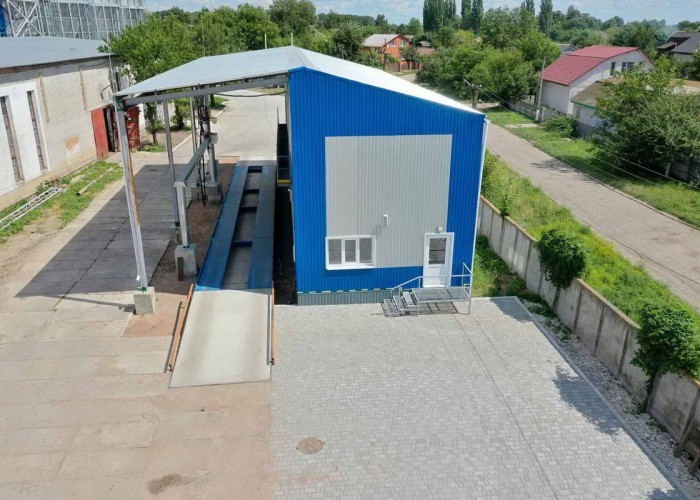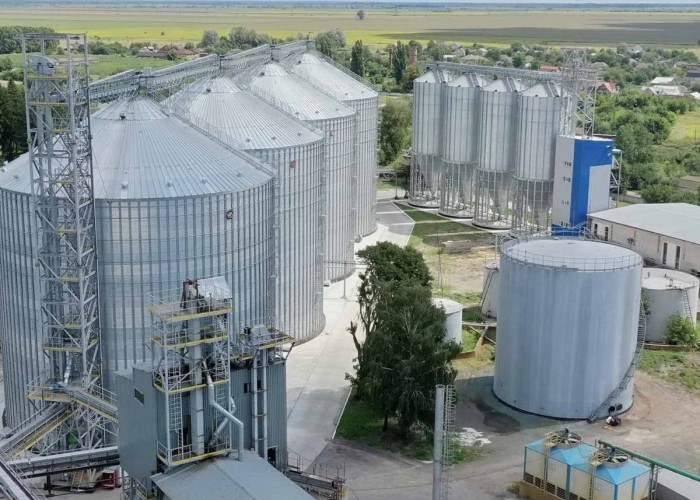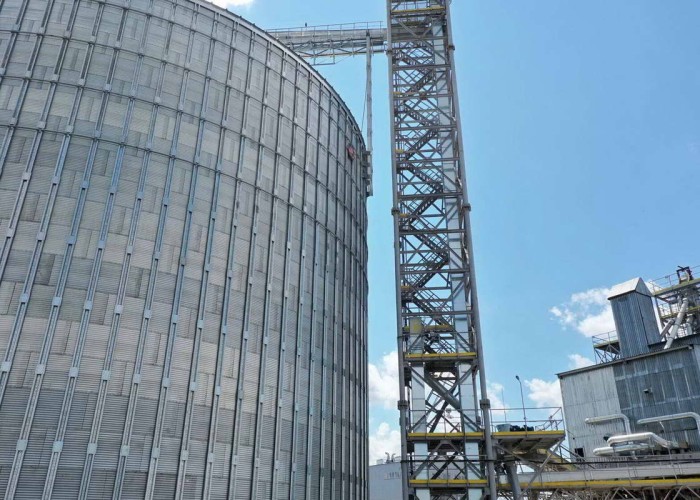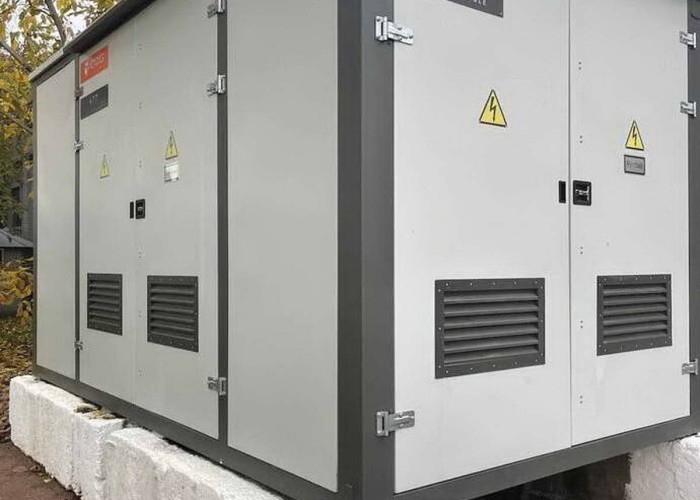Sunflower seed preparation
For processing, sunflower seeds are supplied in a continuous flow to the dehulling and air-sifting section of the oil extraction plant, where they are prepared for oil pressing.
First, separators clean the seeds from foreign impurities to the required parameters. Then the seed flow is weighed and fed to dehulling machines, where the hull is separated from the kernel.
The dehulled seeds in a continuous flow are sent to aspiration (seed air-sifting) machines. The hull is separated from the main product stream and transported to the boiler house of PrJSC "Nizhynsky Zhyrcombinat" (NGK), where it is used as fuel for steam generation required in seed processing. The surplus hulls are directed to the pelletizing section.
Production of pressed oil
Cleaned sunflower kernels (as well as rapeseed or soybean kernels) are fed to roller mills in the pressing section for grinding.
The ground kernels are then subjected to wet-heat treatment. After this stage, the first mechanical pressing of the oil takes place.
Wet-heat treatment is carried out in cookers and significantly facilitates and improves oil recovery on the screw presses.
At the outlet of the presses, two main products are obtained:
-
Pressed oil, which is sent to the filtration section for cleaning.
-
Press cake, which is sent to the extraction plant.
Extraction of press cake and production of extraction oil
When leaving the press, the press cake still contains about 16–21% oil. Further oil recovery is carried out in the extraction section by solvent extraction.
The press cake is treated with a hexane-based solvent in the extractor. At this stage two intermediate products are obtained:
Both products contain solvent that must be removed.
-
Miscella is fed to the distillation unit, where the solvent is removed from the oil.
-
The meal is sent to the toaster, where solvent is stripped and thermal treatment is carried out.
At this stage NGK obtains:
-
extraction oil, which is directed to the hydration section for further purification
-
untoasted, non-granulated meal, which is sent to the meal pelletizing section
Oil cleaning and filtration
Pressed oil contains suspended solids and mechanical impurities. These are removed during primary cleaning in the sludge trap and then on vertical filters.
After primary cleaning, the oil is weighed, dried and sent to storage tanks in the finished products section.
Extraction oil passes through hydration and drying in the hydration section, after which it is also pumped to the finished product storage tanks.
During oil hydration an additional commercial product is obtained – phosphatide concentrate (lecithin), which is collected in a dedicated tank in the finished products section.
Granulation of meal
Non-granulated toasted meal is fed to the pelletizing section, where it is pressed into pellets, cooled and stored in the meal storage elevator, which consists of 4 conical silos for granulated meal with a total capacity of 4,800 tons, as well as metal bunkers for operational storage.
The bulk density of granulated meal is about 0.6 t/m³, while non-granulated meal is around 0.4 t/m³. This significantly reduces logistics and storage costs for customers.
Pelletizing also allows NGK to bring the moisture and temperature of the product to standard values, improving its storage stability.
Granulation and storage of hulls – fuel pellets
Surplus sunflower hulls are directed to the pelletizing section, where they are processed into fuel pellets.
Finished pellets are stored in a dedicated hull pellet warehouse and then sold in bulk or in big bags as a renewable biofuel.






